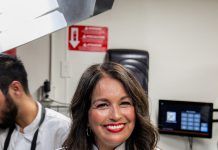The newly-formed California Women’s Party, already looking ahead to 2024 elections, held their first convention virtually on Nov. 8.
Organizer Courtney Sheehan said the Nov. 8 meeting was conducted as part of the qualifying process for political parties in the state of California.
The party, based in Southern California, seeks to address attainable housing concerns; universal pre-kindergarten classes; paid parental leave; workplace discrimination; environmental care, and instituting ranked choice voting.
“Now that we have a president-elect who is not absolutely insane, we feel we can move forward with a new political party here in California and then nationally,” Sheehan said.
The initial group of female leaders formed together, she said “because we feel we are not being represented” and that it is time to start putting the voices of women and female-identifying persons first.
“We have ten items on our platform right now and I don’t see us really expanding too far away from these. America is a first-world nation but we rank among the bottom of developed nations with social programs,” Sheehan said.
The former Marine said the new party is going to “stress the importance of a code of conduct” because “from my time in the military, I can say we need to be able to embrace a whole 360-degree leadership concept” and foresees key party leaders participating in leadership training.
Sheehan also said she wants to be sure the party is created with enough flexibility to act quickly so “we aren’t stuck with layers of bureaucracy” or in any way limit members from maintaining their own opinions apart from a party line.
As the inaugural convention was happening, Sheehan illustrated how quickly the group responds to feedback: she listened to one member caution against responding emotionally, then added ‘respond, don’t react’ to the online agenda available for all to see.
In a separate phone call, local representative Johnnie Estes said the first group of members are relatively neutral, “you can lean right or left,” and the focus is on better representation of women at all levels of government to ultimately benefit local families.
Currently, 18-28% of elected leaders are women, depending on the level of government, according to Rutgers.
Estes said one example of their women-focused approach is to reconceptualize reproductive care as healthcare.
“I think people often see things like maternity leave as a woman’s issue but bonding with your new child is so important and if men were given more of an opportunity for paid leave, I think more men would want that,” Estes said.
Canada, she said, provides a system for families with maternity and paternity leave that could be used as a model here in the United States.
“We need to view this as true American family values — remove the idea that family leave should fall under disability pay and push for unstigmatized time off,” Estes said.
Women-led networks could potentially lobby the Department of Housing and Urban Development to promote multi-use buildings, Estes said, that would incorporate housing, shopping and medical care centers within walking distance.
“That would shave off the need for a car, gas, the cost of insurance” and benefit underprivileged families, Estes said.
She would also like to see current programs revamped for better efficiency.
“As a child, I had the benefit of section eight, low-income housing. We have to expedite current processes like wait lists where people go for years without answers,” Estes said.
Estes said the first step to growing the new political party is to inform local politicians who are “movers and shakers” of their platform, then grow local groups from the collective party like spokes on an umbrella.
“I’m 32 and 2016 rocked my world; I’ve been worried about politics since then. I would never have thought I’d want to get involved in politics— I run a jewelry line— but we need better answers right now,” Estes said.
She said it is exciting to get in on the ground floor of what she sees as a “humanist grass-roots movement” that will begin taking shape on Sunday when the platform is presented to all virtual attendees.
“We hope to have a presidential candidate in 2024.”














